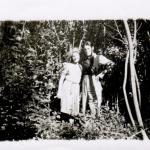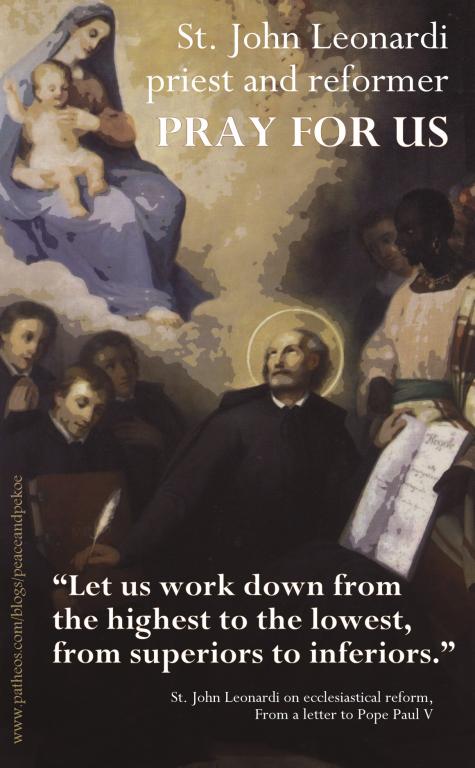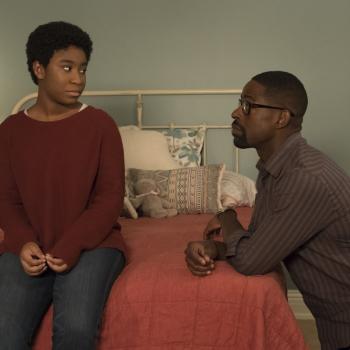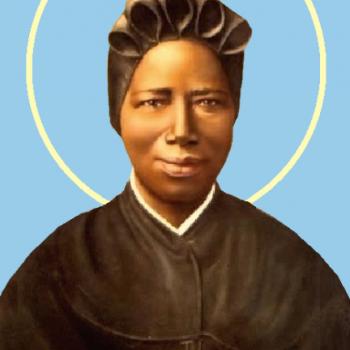To continue yesterday’s post, let me introduce you to Gerald Wynands, my grandmother’s second husband.
Gerald was a Dutch immigrant himself. By the time he met Anna, he’d already worked his way up from laboring on other people’s farms to investing, with a partner, in a farm of his own. Having got the new farm up and running to his satisfaction, Gerald left it in the capable hands of his business partner and took a trip to see more of this gigantic nation.
His travels took him out west, reconnecting with relatives and friends along the way. Anna and Gerald had some family connections in common, and they sent him her way with the suggestion that, as he had a car, he might make himself useful and offer to drive Anna and her children around.
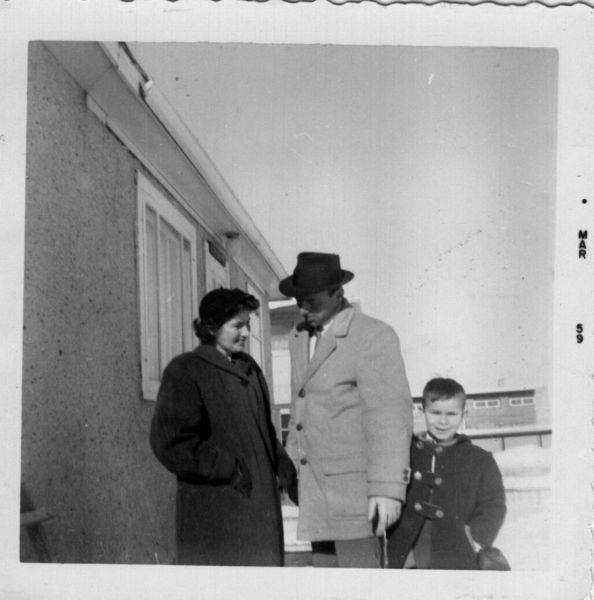
Gerald was amenable to the suggestion.
There’s no indication that Opa ever thought he was getting anything but a fantastic package when he wooed and wed a single mother of three children. My mother recalls that she could never see any difference between how Opa treated the children he gained by marriage and the daughter and son that came after. They were all his children.
Opa Wynands embraced responsibility throughout his life. He’d grown up poor, in a rural area. Like Jan, Gerald came from a farming family. Unlike the Feddemas, the Wynands didn’t own the land they worked on. There wasn’t much in the way of extra comforts or security, and Opa rather sheepishly admitted, later in life, that his time in a German work camp during the war had been a step up. He’d always been poor, and in the camps that housed Dutch laborers there was (by policy) at least always plenty of food and the occasional entertainment or social outing.
Gerald’s ambition was to someday, somewhere, farm his own land and see his hard work support the people he loved. When he brought his new wife and children home to his farm in Ontario, these dreams took on substance. No longer was it “someday, somewhere,” it was “now, here, with Anna, with Truus and Adrian and Eduard.”
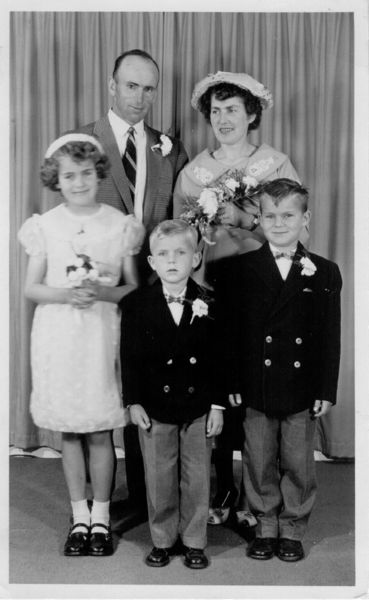
Opa’s life is marked by the embrace of responsibility and generosity. If you’ve been keeping track, my mother wound up with four extra siblings–five children in total. But there’s rarely as few as five children in the pictures from her childhood on the farm. There were always neighbors and friends around. Oma and Opa’s home was always welcoming to visitors.
Then, as their own children grew, Oma and Opa opened their home to foster children, who my mother recalls were “part of our family, little sisters and brothers who received their share of the love, fun and teasing that are so much a part of family life.” One of the last children they fostered was my cousin–adopted by my uncle and aunt after Oma and Opa fostered him.
The scarcity in Gerald’s childhood could have made him grasping and fearful of losing what he’d gained through his hard work–but instead his life was marked with an open-handedness that only expanded to include more people–his wife and her family and her deceased husband’s family, his neighbors and community and the children he fostered, his children’s spouses and their families, grandchildren and great-grandchildren and so many more.
This is the inheritance I have from my Opa Wynands.
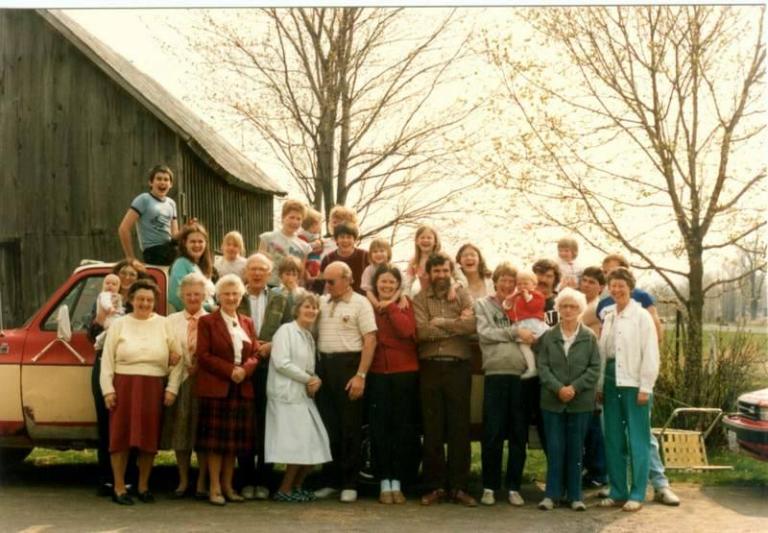
That’s a picture taken during a family gathering when I was a child. (I’m one of the many blond children, good luck figuring out which one!)
When I look at this photo, I see aunts and uncles and cousins. I see my aunt’s mother-in-law and grandmother-in-law on the far left. I see my paternal grandmother on the far right, standing beside my uncle’s mother-in-law–and her parents are standing over beside Oma and Opa. (Keeping track? That’s Opa’s wife, children, and grandchildren; his children’s spouses, his children’s spouse’s parents, and several of his children’s spouse’s parent’s parents.)
Opa taught us, by example, that there is nothing small about family, nothing burdensome in hospitality, and nothing constricting about responsibility.

